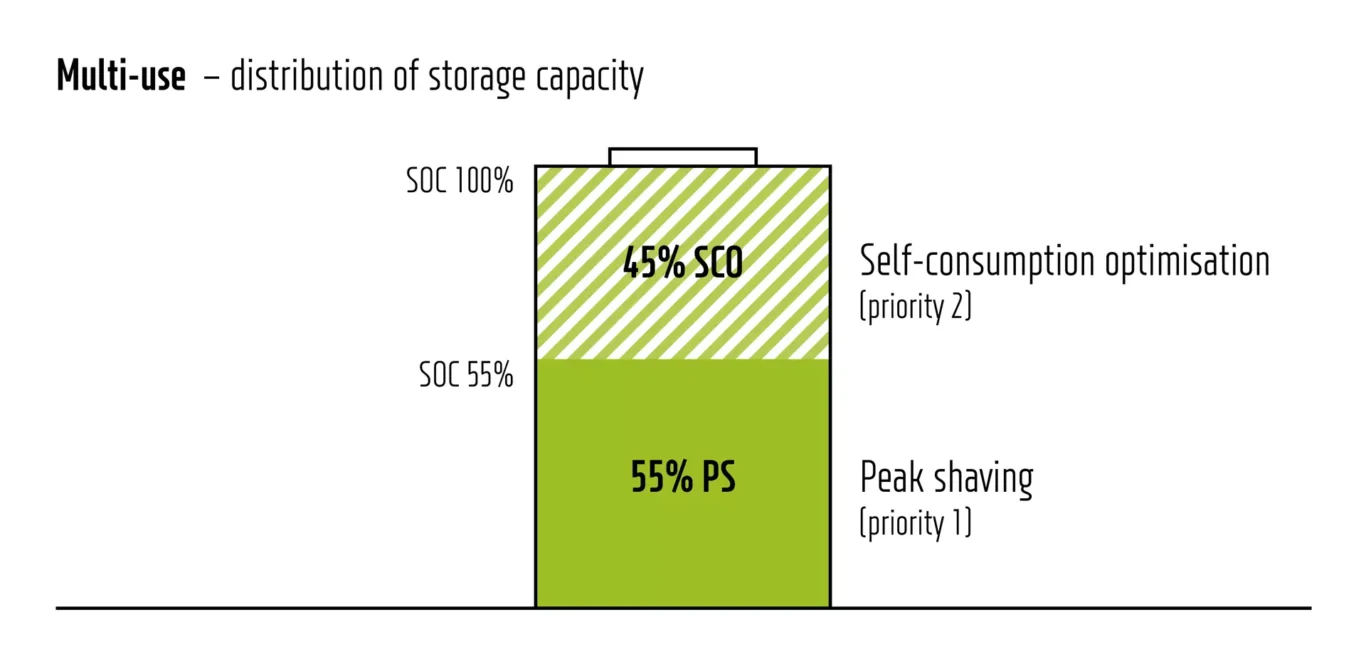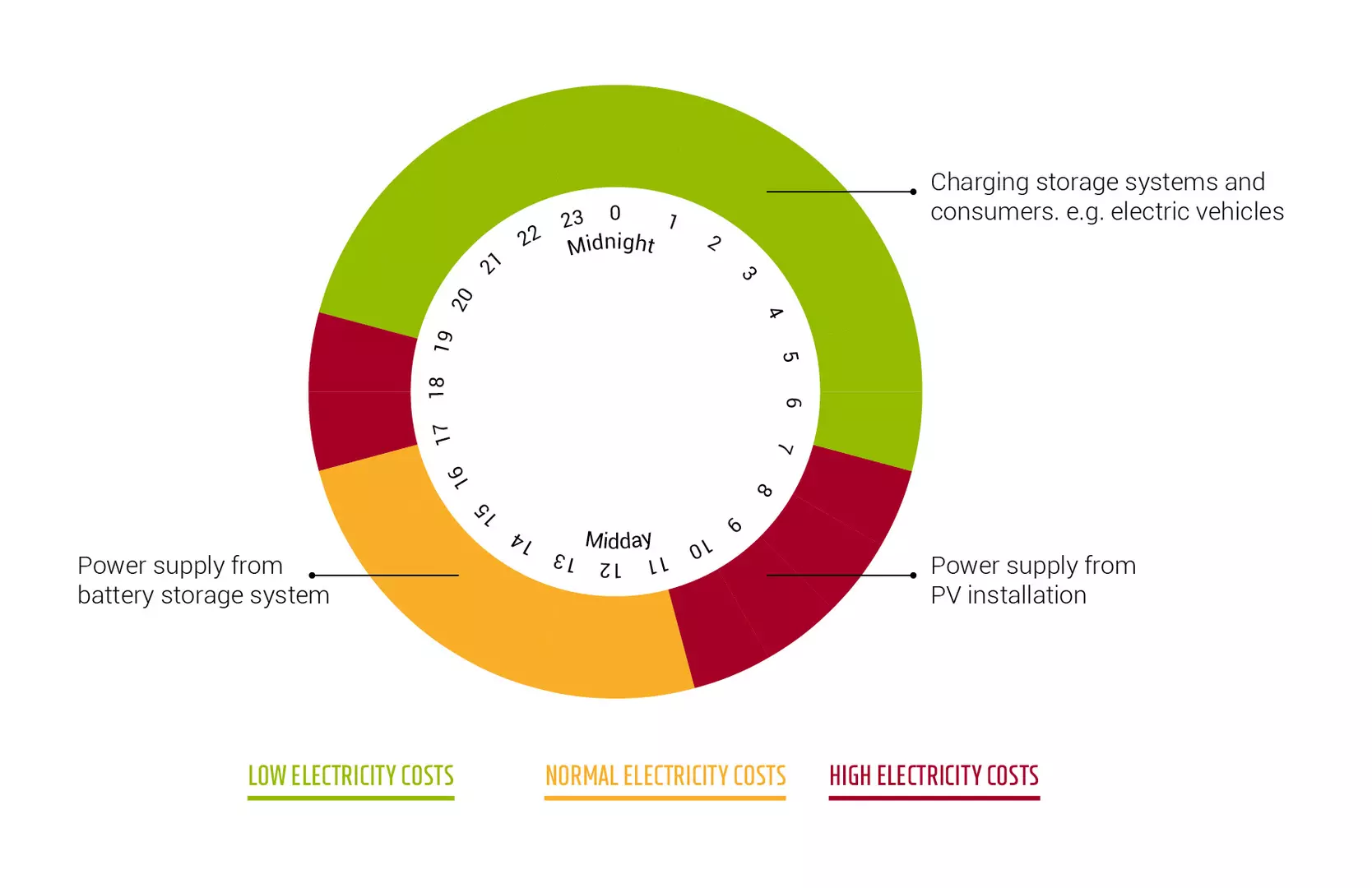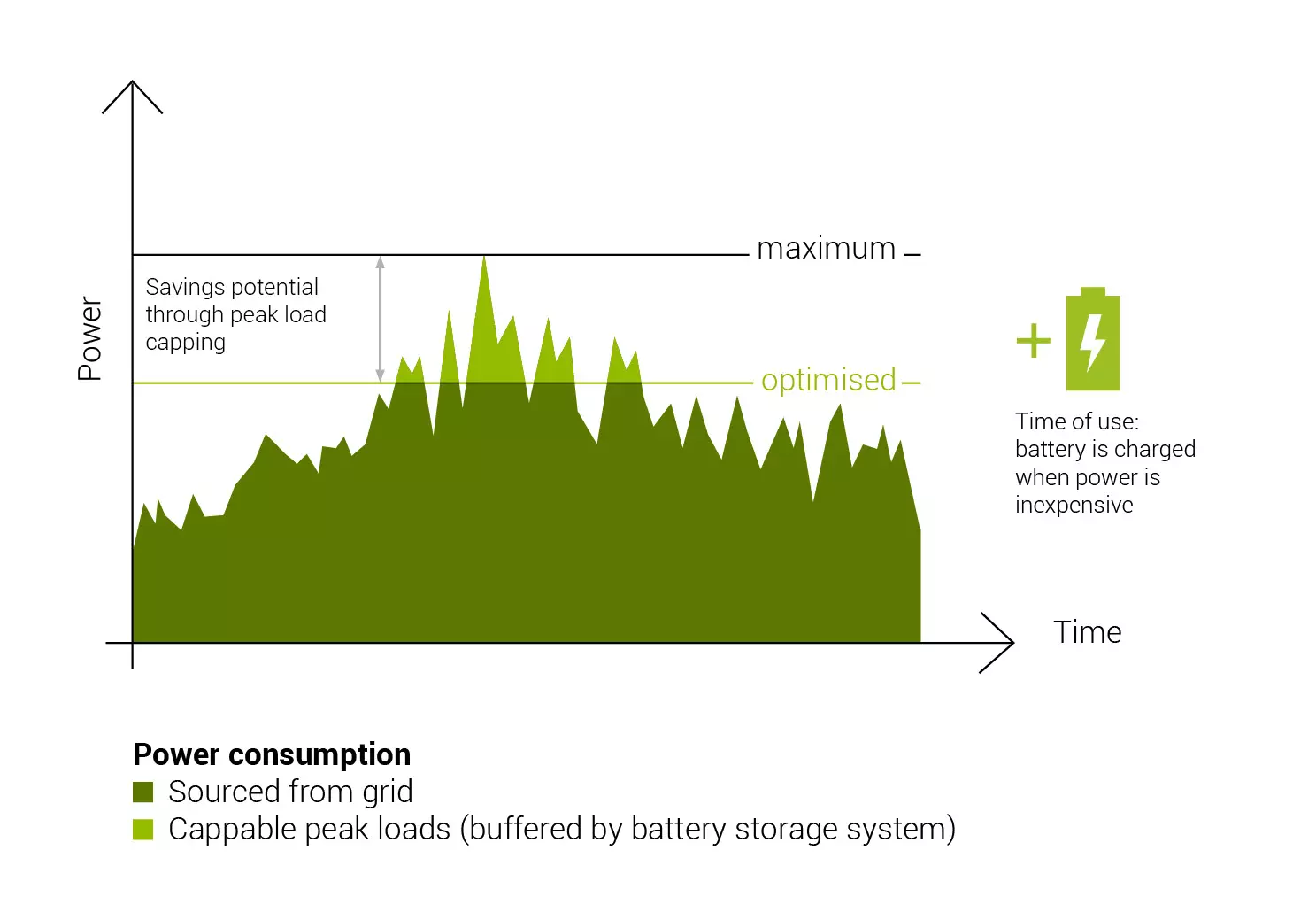BENEFIT FROM TWO APPLICATIONS AT ONCE
Thanks to its VAS Energy Manager energy management system, the TS-I HV 80 enables concurrent use of multiple battery storage systems. This means you can use two operational management strategies in parallel in a variety of combinations: self-consumption optimisation (SCO) with peak shaving (physical or RLM PS), SCO with Time of Use (TOU) or TOU with PS. Multi-use allows you to harness the benefits of both applications. You can use individual settings to define which application to prioritise. In each case, electricity costs are cut in two ways, which also means that the investment is written off sooner.
OPTION 1: SCO WITH PS
Combining the self-consumption optimisation and peak shaving applications reduces additional costs for peak loads as well as the electricity purchased from the supplier.
HOW YOU BENEFIT FROM SCO AND PS
- Greater cost savings for electricity
- Investment written off sooner
- Extended battery lifespan with RLM PS

 Tiếng Việt
Tiếng Việt 中文 (中国)
中文 (中国)


